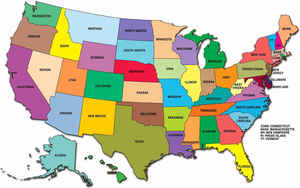Ohio State Beverage
Tomato Juice

(Lycopersicon esculentum)
Adopted in 1965.
In 1965, the Ohio General Assembly made tomato juice, (Lycopersicon esculentum,) Ohio's official beverage. Adoption of an official beverage coincided with the Tomato Festival held in Reynoldsburg, Ohio.
One would thought the official state beverage might have been beer, but, no it is the juice from a plant that Native American's thought was poisonous. Although the plant originated in Mexico, it would take a Reynoldsburg citizen to develop a way of growing these red fruits in a way that made sense commercially, to grow, harvest and pack tomatoes. In 1870, Reynoldsburg resident Alexander Livingston began to grow tomatoes commercially. He is famous for developing the Paragon Tomato. The Tomato Festival, which occurs every year, honors Livingston and the tomato's importance to Ohio's economy which is second only to California in tomato growing.Ohio State Beverage: Tomato Juice

Ohio Indians and early white settlers did not grow tomatoes originally. Many people feared that tomatoes were poisonous, but by the 1840s, many state residents planted tomatoes in their gardens. By the late 1800s, Ohio farmers began to grow tomatoes commercially. In 1965, Ohio was the second leading producer of tomato juice in the United States, ranking behind only California. Tomato growing and processing remains an important component of Ohio's economy today. In 2002, Ohio farmers harvested 6,300 acres of tomatoes, averaging almost twenty-four tons of tomatoes in each acre. This same year, Ohio processing plants produced 149,630 tons of processed tomatoes. While farmers grow tomatoes across Ohio, the heaviest concentration of tomato farming takes place in the northwestern quadrant of the state.
How to make Tomato Juice, tomatoes are cooked to develop the taste and release the juice, then strained to remove excess fibers
and seeds, and then canned or bottled.
It differs from Tomato Sauce in that Tomato Sauce is cooked further until it reduces and becomes thick, and flavorings are definitely added, such as
herbs and spices.
Tomato Juice made at home from home recipes is often flavored with herbs or spices, and vegetables such as hot or sweet peppers, onions, garlic and
celery.
Commercial varieties, which are usually canned or bottled, are usually just tomatoes and salt, though there are flavored "cocktail" varieties
such as Clamato and V8 that will use some of the same types of flavorings as home recipes would use.
Tomato Juice is often used in drinks such as Bloody Mary, Virgin Mary and Red Eye cocktails.
Quick Tomato Juice
By CHRISTOPHER IDONE
Ingredients
4 red, ripe tomatoes, about 2 pounds, cored and quartered
1/2 green bell pepper, seeded, membranes removed and chopped
1 small cucumber peeled, seeded and sliced in chunks
1/2 small yellow onion, about 2 ounces, peeled and quartered
2 peels of lemon zest
1/4 teaspoon celery seeds
1/4 teaspoon sesame seeds
Salt to taste, optional
Freshly ground pepper to taste
Preparation
1. Place the ingredients in the bowl of a food processor. Pulse on and off and puree until smooth.
2. Strain, if desired, and chill.
YIELD - Four or more servings
Ohio Law
The law designating tomato juice as the official Ohio state beverage is found in the Ohio Revised Code, General Provisions, Chapter 5, Section 5.08.
GENERAL PROVISIONS
Chapter 5 - STATE INSIGNIA; SEALS; HOLIDAYS.
§ 5.08 Official state beverage.
The canned, processed juice and pulp of the fruit of the herb Lycopersicon esculentum, commonly known as tomato juice, is hereby adopted as the official
beverage of the state.
History
HISTORY: 131 v 5. Eff 10-6-65.
Taxonomic Hierarchy: Tomato
Kingdom: Plantae - Plants
Division: Magnoliophyta
Class: Magnoliopsida
Order: Solanales
Family: Solanaceae (nightshade family)
Genus: Lycopersicon

List Official US State Foods







